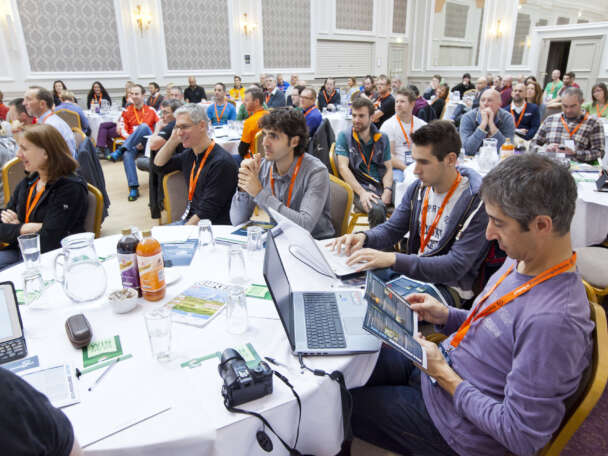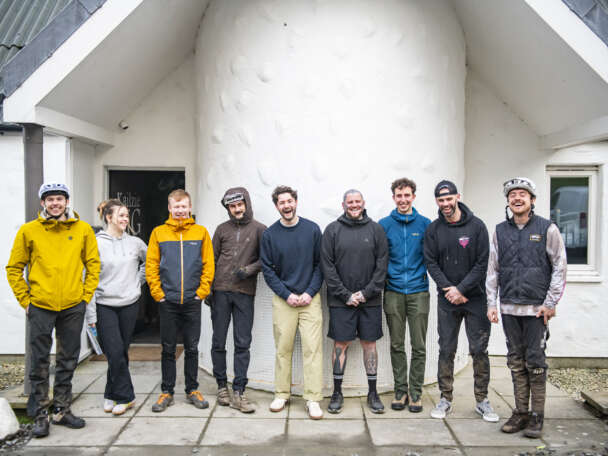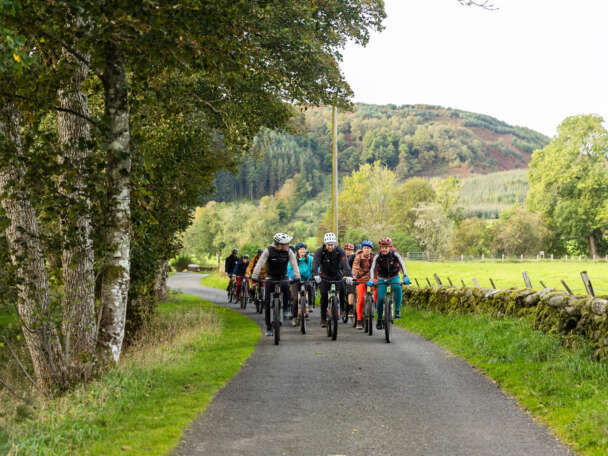Evaluating the impact of Trail Therapy Programme
Research by Edinburgh Napier University demonstrates the positive benefits of using mountain biking as a way to connect with nature and improve mental health.

NEW RESEARCH ON THE IMPACT OF A MOUNTAIN BIKE TRAIL THERAPY PROGRAMME LAUNCHED
Research by Edinburgh Napier University demonstrates the positive benefits of using mountain biking as a way to connect with nature and improve mental health.
The Developing Mountain Biking in Scotland (DMBinS) team have been running a Trail Therapy programme, a social prescription mountain biking programme, for over a year. The aim is to share the joys and obtainable challenges of mountain biking with individuals who have an existing mental health diagnosis. The programme is designed to help riders grow in confidence, improve social interactions, establish skills of self-regulation, and accelerate their road to wellbeing.
The results from this qualitative evaluation provide important insights into the impact of Trail Therapy through interviews with participants and mountain bike leaders involved in delivering the programme. The emergent themes and categories identified within the research show the unique combination of physical, psychological, social, and natural challenges that are inherent within an MTB therapy approach. These interrelated challenges shape the riders’ experiences on the programme and sit at the centre of what makes it effective.
Dr Christine Fox, the DMBinS Mountain Bike Health Programme Manager, said:
“We can visibly see the difference in participants on our Trail Therapy programme. This research from Edinburgh Napier University confirms that the programme has an impact on improving the health and wellbeing of those involved.
Mountain biking connects us with nature in a unique way that combines physical challenge, positive risk taking, skill development, and unique opportunities for therapeutic experiences.
We also take great pride in our Trail Therapy MTB leader, Paul MacFarlane, and volunteers in their approach that provides support, embeds therapeutic activities, whilst gauging the skill level and motivations of each individual.
We currently run the programme in areas where we can source local or regional funding and we hope we can use the research to roll the programme out to other areas of Scotland.”
It is clear from the data that the riders and facilitators emphasise the holistic impact on their overall wellbeing, and that due to the unique nature of MTB these would be difficult to replicate in other settings.
Dr Lesley Ingram-Sills, a member of the team from Edinburgh Napier University who conducted the research, explained the evaluation results:
“The evaluation describes themes that emerged through an analysis process and uses the voices of the riders and their own words to express their experiences.
Overall, those involved with the trail therapy programme were enthusiastic to share their experiences and reflected on their involvement in an extremely positive way. The stories and narratives that emerged from the analysis largely emphasised a holistic impact of the programme on riders’ overall wellbeing and skill development, underpinned by three main interrelated characteristics; challenge (physical, psychosocial, and exposure to the natural environment), MTB experiences, and support.
There are still opportunities to further evaluate the programme and we know DMBinS are keen to learn how they can make it even more impactful. We look forward to working with them to source the funding for this important research.”
One of the Trail Therapy participants described the programme:
“The opportunities for people to have conversations not over a table, not face to face with a councillor or a therapist, not a clinical environment, but out on a bike side by side is amazing. There's no white eye contact, it's not threatening, it's informal and sometimes that's the best kind of therapy we've got, you know”
Download the research using the link below.
Trail Therapy is funded by Trek, Nature Scot, Scottish Government, and donations from the Scottish MTB Health Fund.
If you can, please consider donating to the Scottish MTB Heath Fund and help us with our work in this space. Thank you.
DonateKey Topics
Browse more from across the site by related topics
You may also like
Have Your Say: New Workshops to Help Shape the Future of Mountain Biking in Scotland

The Bicycle Association of GB and Developing Mountain Biking in Scotland Announce Strategic Partnership
Global Brands Get Behind Fresh Cuts 48 Hour Film Challenge

BE A SCOTTISH MTB GATHERING EVENT PARTNER 2025

If you can, please consider donating to the Scottish MTB Heath Fund and help us with our work in this space. Thank you.
Donate


